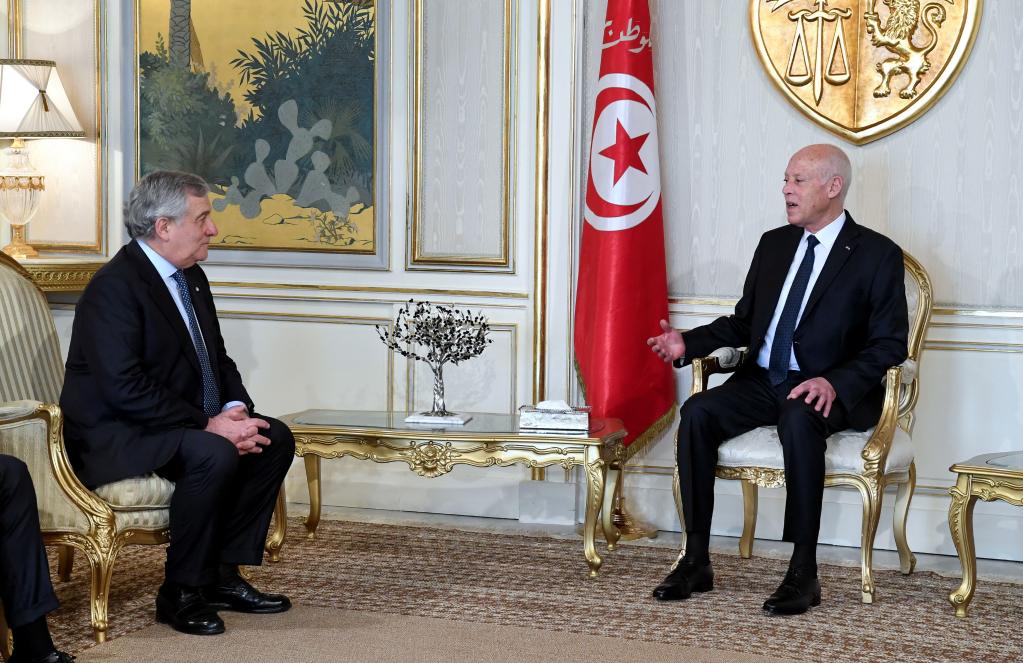Italy has been emphasizing its continued support for Tunisia in the face of Western criticism. On March 20th, Italian Foreign Minister Antonio Tajani urged the International Monetary Fund to release a USD 1.9 billion loan to Tunisia. Italian Prime Minister Giorgia Meloni also called on the European Union on March 16th to provide immediate support to Tunisia, which is currently facing a severe economic crisis. In addition, Italian media reports have revealed Meloni’s request for some countries to assist Tunisia. She also urged the Italian embassy in Washington and Italian officials at the IMF to persuade the Fund’s management to pass an urgent loan for Tunisia.
Increasing Pressure
Italy’s support for Tunisia coincides with increasing pressure from the United States and some European countries on Tunisian authorities due to recent domestic measures. This pressure has intensified, particularly after disagreements widened between Tunisia and European countries, such as Tunisian President Qais Saied’s decision on February 18th to expel Esther Lynch, the General Secretary of the European Trade Union Confederation, after she participated in a demonstration organized by the Tunisian General Labor Union and criticized the authorities.
Italy’s recent efforts to support Tunisia also come shortly after France announced its withdrawal from the Sahel region. This move could have negative consequences not only for the Sahel but also for neighboring countries, particularly Libya and Tunisia.
Main Considerations
It can be said that there are many considerations that drive Italy to provide further support to Tunisia, the most prominent of which are:
- The continuous waves of refugees: One of the main reasons for Italy’s efforts to strengthen cooperation with Tunisia is to combat illegal migration. The continuous waves of refugees have imposed a chronic crisis on successive Italian governments due to their economic, social, and security repercussions. Rome’s concern about migration has increased, especially after the arrival of nearly 32,000 migrants arrived on dilapidated boats to Italian coasts in 2022, including 18,000 from Tunisia. This has increased economic pressures on Italy and underscores the need for enhanced support to Tunisia to combat illegal migration. Moreover, Italian officials are supporting President Qais Saied’s call to tighten restrictions and enforce laws on immigrants coming from sub-Saharan African countries who reside in Tunisia illegally.
As a result, Italy is actively seeking to stabilize Tunisia, as was evident in Italian Prime Minister Giorgia Meloni’s statement on March 22nd, when she emphasized that Tunisia is facing an extremely complex financial situation, which, if left unresolved, could result in an unstoppable migration flow. Meloni warned of the disturbing consequences of such a phenomenon, which could have a significant impact on Italy.
This means that Rome no longer rules out the possibility that the economic crisis will affect the Tunisian authorities’ ability to achieve stability, which will have an impact on the extent to which decisive measures can be taken to prevent the influx of illegal refugees to European countries, especially Italy. - Expanding Economic Cooperation: Italy’s efforts to strengthen relations with Tunisia and support President Qais Saied’s government are driven, in part, by its economic interests in the country. Italy is the second largest foreign investor in Tunisia, with over 900 companies operating there. Recent reports indicate that Italy has become Tunisia’s top trading partner since 2021, surpassing France and other countries. Energy cooperation is a key area of focus for bilateral relations between Italy and Tunisia; in December 2022, the Italian electricity company Terna and the European Commission announced a project to extend an undersea power line between Italy and Tunisia, which will be supported with funding of around EUR 307 million (USD 324 million) from the European Union.
- Expanding presence in the Maghreb region: Rome is seeking to increase its presence in the Maghreb region, which is of strategic and security importance to Western countries. Given the tension in relations between France and several Maghreb countries over visa issues and other disputes, as well as the deteriorating relationship between Tunisia and the United States, Italy sees an opportunity to expand its influence in the region. The US has intensified pressure on Tunisia due to some of its domestic policies.
- Securing interests in Libya: The developments in Libya are of particular interest to Italy, as they can have direct implications on its security and interests. To this end, Italy is making efforts to develop bilateral cooperation with Libya’s neighboring countries, especially Tunisia and Algeria. Italy believes that the stability of these countries is crucial to support efforts to reach a settlement to the Libyan crisis and secure its interests in Libya.
- Increasing coordination against terrorist organizations: Despite the significant defeats and setbacks experienced by major terrorist organizations such as ISIS and Al Qaeda, Italy recognizes that these groups may still attempt to bypass the security measures implemented by authorities in European countries to bolster their capacity to conduct terrorist operations within those countries. As a result, Rome considers increasing security coordination with southern Mediterranean countries to be a crucial tool in reducing the ability of these organizations to carry out such potential attacks.
- Developing bilateral military relations: Both Italy and Tunisia prioritize the development of the Tunisian army and its developmental role. This was confirmed by Tunisian Minister of Defense Imed Memmich during his meeting with his former Italian counterpart, Lorenzo Guerini, on March 15th, 2022. Memmich stated that Tunisia is interested in developing bilateral military cooperation with Rome and sees Italy as a reliable partner in enhancing the capabilities of the Tunisian army.
Stable Policy
It can be concluded that Italy’s support for Tunisia will continue in the future, given the Italian government’s policy of expanding bilateral relations with neighboring countries to confront common challenges. This includes the issues of illegal immigration and terrorist organizations, as well as the impact of the Russian-Ukrainian war on the region. Italy sees the stability and development of Tunisia as crucial for its own interests in the Maghreb region and beyond.


